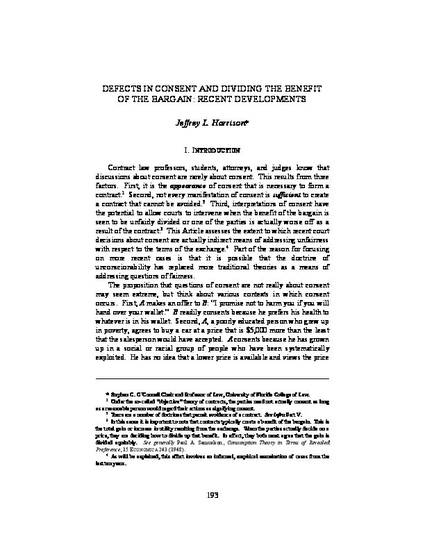
Contract law professors and students, attorneys, judges know that discussions about consent are rarely about consent. This results from three factors. First, it is the appearance of consent that is necessary to form a contract. Second, not every manifestation of consent is sufficient to create a contract that cannot be avoided. Third, interpretations of consent have the potential to allow courts to intervene when the benefit of the bargain is seen to be unfairly divided or one of the parties is actually worse off as a result of the contract. This Article assesses the extent to which recent decisions about consent are actually indirect means of addressing unfairness with respect to the terms of the exchange. Part of the reason for focusing on more recent cases is that it is possible that the doctrine of unconscionability has replaced more traditional theories as a means of addressing questions of fairness. This modest empirical effort suggests that the notion that courts rely on traditional notions of defects in consent to rescue those who are disadvantaged is obsolete.
